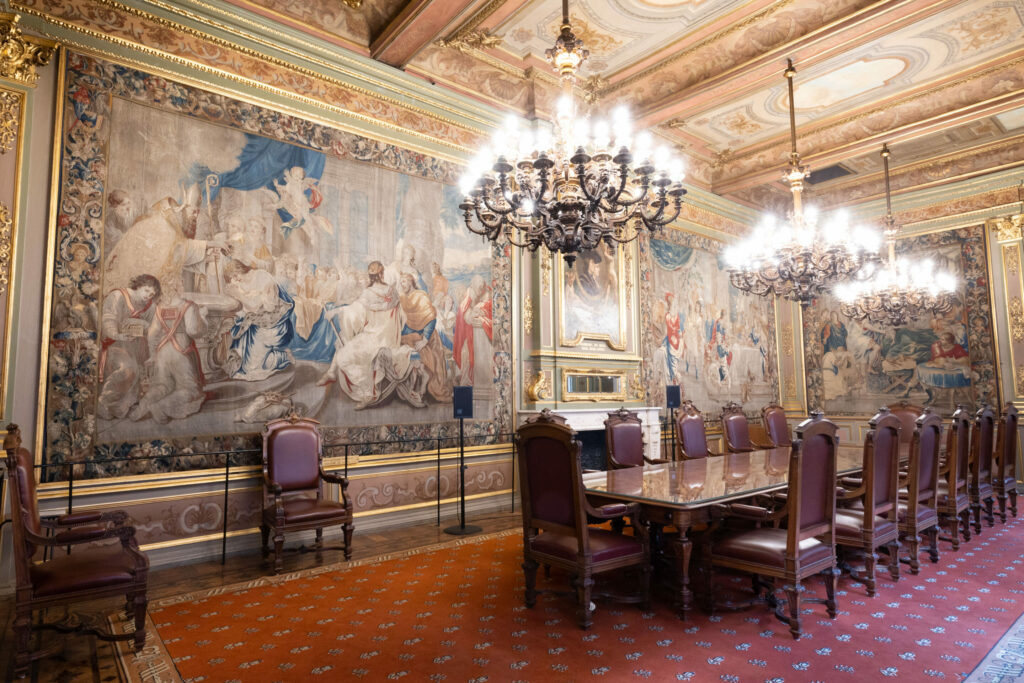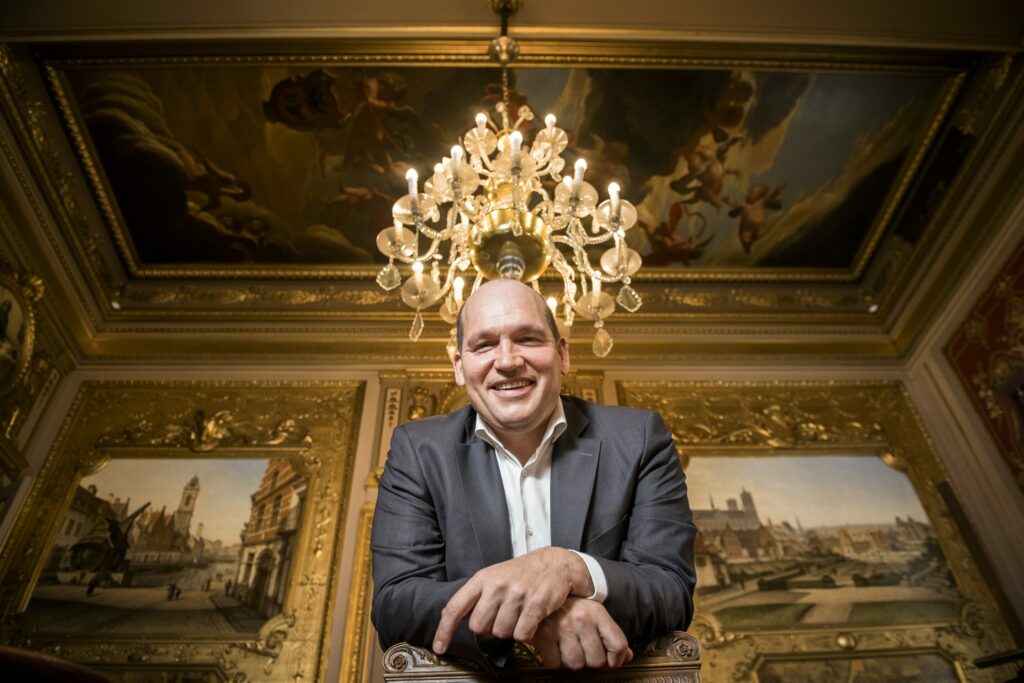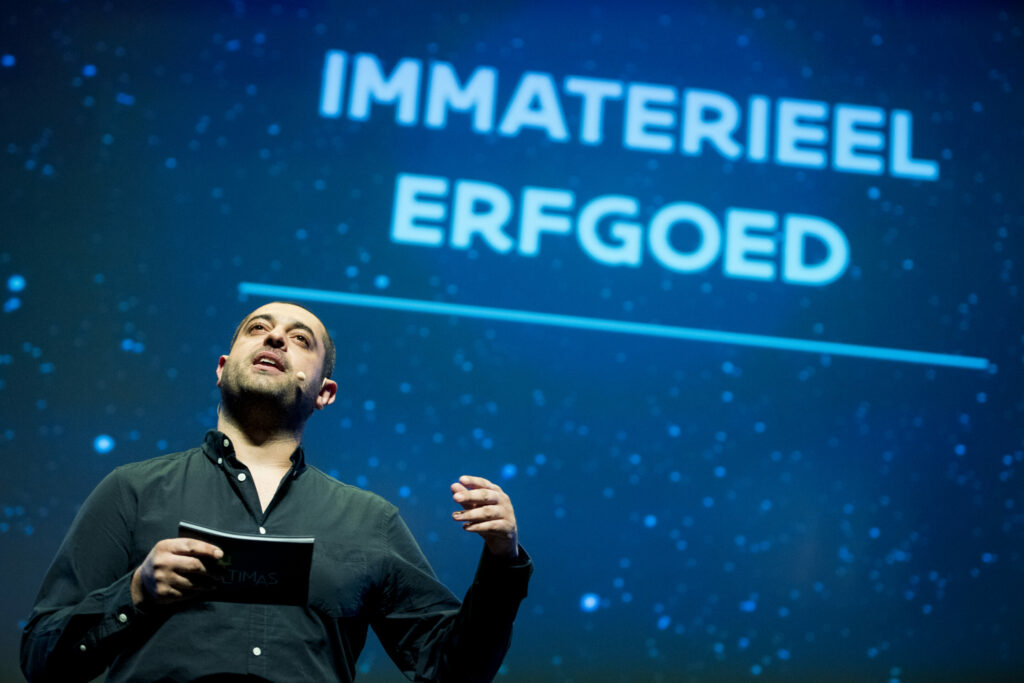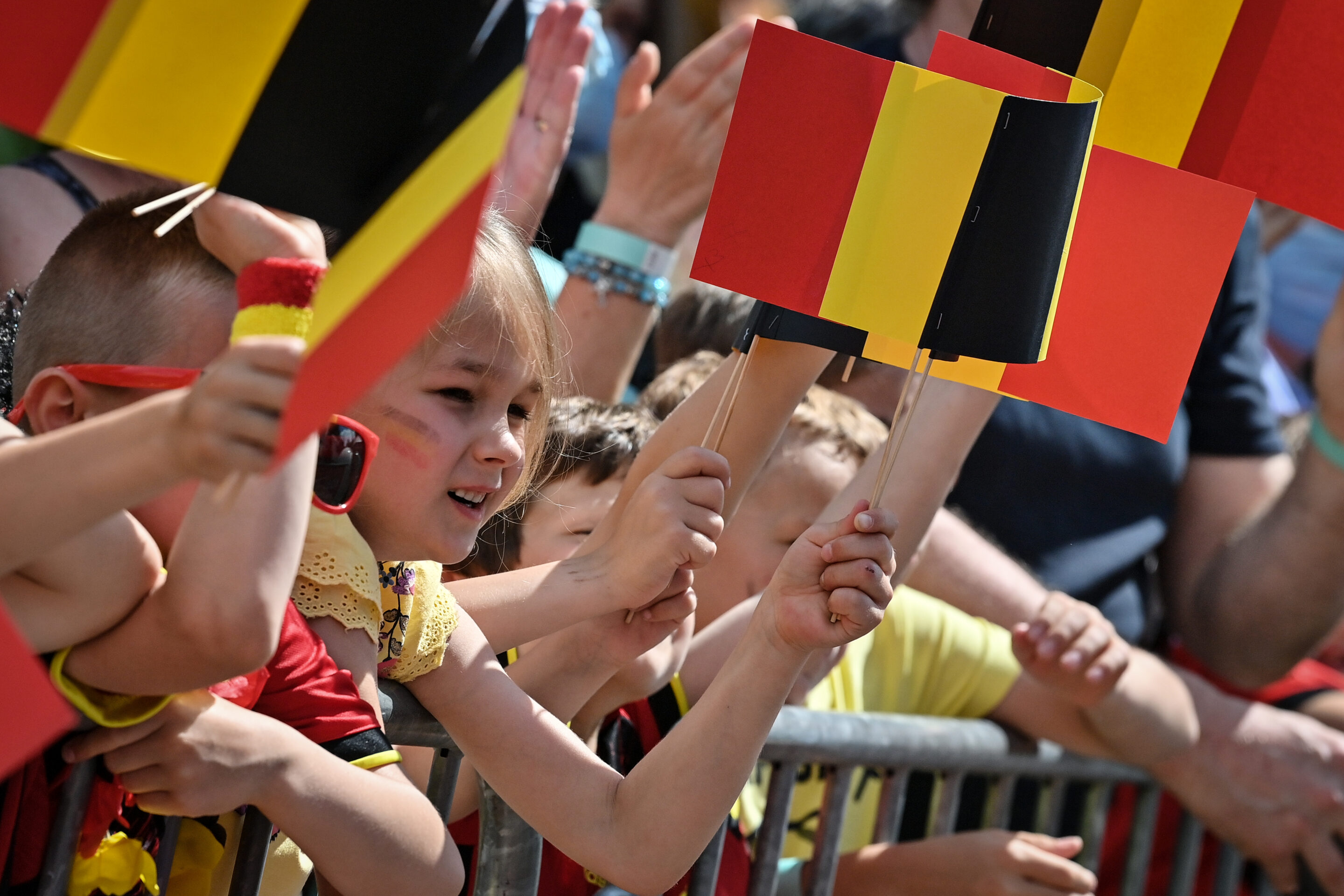Brussels is one of the most multicultural cities in the world, with residents of 184 nationalities. Every year, hundreds of these internationals acquire Belgian citizenship – a purely administrative process without fanfare or Belgian flags to mark the occasion.
But that might be about to change. Since last year, the City of Brussels has been organising ceremonies to officially welcome all these "new Belgians" to the country.
"This mix of people in Brussels is a great asset but the idea for the ceremony came from the husband of Brussels State Secretary for Urbanism Ans Persoons," Brussels City mayor Philippe Close (PS) told The Brussels Times. "He is English so he knows all about ceremony and protocol. He works at the European Commission and like nearly 7,000 other British people became Belgian at the time of Brexit."
But once the process was completed, he went to the city hall to pick up his new ID card and that was it. "When he told me how strange it felt I realised he was right. So we created a ceremony for those who want to attend: I give a speech, we play the national anthem, we put up the Belgian flags and we have a drink together."
"From the first edition it was an incredible success," Close enthuses.
'Something extra'
Almost all new Belgians sign up for the ceremony and the City of Brussels now organises three or four every year. "It is not a very big event but it is very moving. People come very well-dressed, they bring their families, friends... Everyone is welcome."
Acquiring the Belgian identity does not mean people are asked to give up their previous one, Close underlines. "They just have something extra. Around 35% of people in Brussels do not have Belgian nationality, but that does not make them any less Belgian. And certainly not less Bruxellois."
In addition to being the capital of Belgium, Brussels is also the capital of the EU – making it the "second capital" of some 400 million European citizens. "Becoming Belgian doesn't mean you withdraw into yourself; you open yourself up to the world. And in the case of Brussels, probably even more so than elsewhere."

Old City Hall of Brussels on the Grand Place. Credit: Belga/Benoit Doppagne
This is certainly the case for Daniel (32), who moved to Brussels from a small German village six years ago and attended Close's last ceremony after recently becoming Belgian. "Most people are surprised when I say that, as a German, I also got Belgian citizenship," he told The Brussels Times.
For many – especially those from non-EU countries – citizenship is about the rights and privileges that come with it, but Germans already hold a very privileged passport. Still, Daniel explains how people coming to work in the EU "bubble" often don't plan to stay but 15 years later find themselves fully settled, with a stable job and children in Belgian schools. Many never take the step to become Belgian.
"I realised pretty soon that I didn't want that. So I live here as if I am going to stay for the rest of my life – regardless of whether I actually will. That included getting Belgian citizenship when I could."
Does it make him feel Belgian? "Many Belgians do not feel very Belgian except for when the king dies or the Red Devils play – or so I was told. So no, I do not feel Belgian, but isn't that the most Belgian way to feel about Belgium?"
Stepping into a community
In his last ceremonial speech, Close emphasised the feeling of Brussels identity over Belgian identity – something that resonated with Daniel. "I have spent the last six years in this city and love it. I have my work here, my community, my partner, my political engagement, my hiking group, my favourite bar... All the while there is still so much to discover about this city."
Rhys (39), from the UK, attended the same ceremony as Daniel. He already wanted to become Belgian once it became clear that he would be staying in the country for some time. And Brexit undoubtedly played a part for him – both symbolically and practically.
"But it's not only that. I have lived in Belgium for around eight years now and love it. From that perspective, it is important to me to be a full participant. I still remember the feeling of writing out by hand the statement of agreeing to abide by the laws and values of the land. It was a special moment. It was the sense of making that positive decision to step into a community, something much bigger than myself."

Brussels Mayor Philippe Close. Credit: Belga
While most municipalities organise ceremonies for new inhabitants, the City of Brussels is among the only ones organising something similar for new Belgian citizens. Close has only been doing it for about a year but is convinced that other municipalities will follow. "This step becomes another part of people's life story but also of our common story. It is an important symbol."
So far, in the municipality of Ixelles – where around 50% of citizens are non-Belgians – such a ceremony is not yet organised. David (36) is Colombian, has lived in Brussels for ten years and also acquired citizenship recently.
"In practical terms, it did not change much for me. But as a non-EU citizen, I feel more safe with the Belgian nationality," he told The Brussels Times. "The 12-13 years that I have lived in Europe without an EU nationality have almost always been a fight with administrations and paperwork. And I also feel great about being able to vote."
"I feel very Bruxellois. I really like that in Brussels you do not feel like 'a foreigner' because almost everyone is from somewhere else, including Flanders and Wallonia," David explains. He adds that the way to be Bruxellois is "just living in the city and liking it. I wish it was like this everywhere else. "
Belgian identity
This feeling of double identity isn't only felt among new Belgians – some Belgium-born nationals share the sentiment. About 60% of Belgians have roots in other countries. One of them is Belgian-Turkish Erhan Demirci (41), a Flemish stand-up comedian who has been living in Brussels for 20 years.
"I was born here, of course I feel Belgian. Turkish roots or not, you automatically pick up the culture, the way of life and the way of thinking from here," Demirci told The Brussels Times. "I notice it mostly when I am in Turkey. I do have that culture and background but in the little details I feel that I am Belgian as well."
He considers it "an incredible wealth" to have been brought up in two cultures. "They reinforce each other. It is Turkish culture at home but once I step outside the door I live in Belgium, in Brussels. Very strongly, I notice an identity that binds us all here, because I live among Turks, Albanians, Moroccans, Belgians, Italians, ..."

Erhan Demirci pictured during the award ceremony of the 'Ultima's', Flemish culture prizes, Tuesday 13 June 2017, in Gent. Credit: Belga/Jasper Jacobs
Whether people work for the European Union or came to Belgium to work in the mines decades ago, Demirci shares his neighbourhood in the municipality of Evere with all of them. "When we are outside we have a shared identity, and that is the Belgian identity. I think that is the strength of Brussels: there is no dominant group here. And that makes you just like everyone else."
This, too, is something Close emphasises in his welcome speech: "In Brussels, you can be who you are. With all of your past and everything that made you who you are. That is so important. All of this is your DNA. This real mix of people in Brussels is very special. Sometimes it works, sometimes it doesn't, but we always find a solution."

